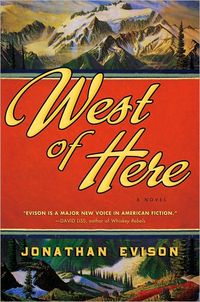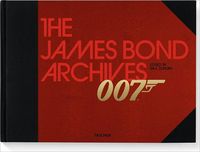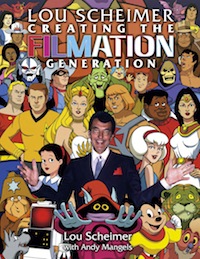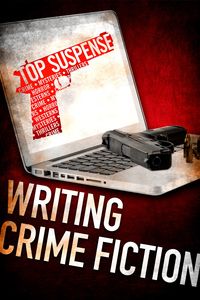 After finishing the first draft of my new book, I treated myself to a week-long "staycation," catching up on some books and movies.
After finishing the first draft of my new book, I treated myself to a week-long "staycation," catching up on some books and movies.
I finally got around to reading Jonathan Evison's West of Here. It's two books in one: a period western and a contemporary novel that evokes both Larry McMurtry and John Irving with its colorful characters, amiable losers, dark-comic undertones and strong women. The story is set in the fictional, Washington town of Port Bonita, intercutting between its pioneering, hard-scrabble inhabitants in the late 1800s and their descendants (and other assorted characters) in 2006. It's a gimmick that could be just that but both halves work surprisingly well, and could stand on their own as individual novels. Evison also manages to balance drama and comedy, social commentary and social satire, without a stumble, while also juggling a touch of magical realism at the same time. It's a remarkable, highly entertaining, and invigoratingly original work.
No sooner was I done with that than Tachen's The James Bond Archives arrived on my doorstep…and nearly cracked the bricks underneath.

Visually, the book is stunning. It's a beautiful, handsomely produced book and the photos and other artwork are terrific. The information content, though, is a let-down. The chapters don't break any new ground or offer any revelations…they largely rehash information most Bond fans have read elsewhere and in far more detail in other books, articles and magazines. I was pleasantly surprised to see full-fledged chapters devoted to Charles Feldman's CASINO ROYALE and NEVER SAY NEVER AGAIN that were as lovingly crafted as the chapters devoted to the "official" canon.
At fifteen pounds, this book isn't going to be very practical bathroom reading but you could take it to the gym…and read it as a weight lifting exercise. So although the book may disappoint from an information stand-point, I think it's still a must-have for Bond fans and a gorgeous addition to any library.
 More information rich, but less sumptuously produced, is Lou Scheimer: Creating the Filmmation Generation by Scheimer and Andy Mangels. It's a complete, detailed history of the company and all of its animated and live action shows and feature films.
More information rich, but less sumptuously produced, is Lou Scheimer: Creating the Filmmation Generation by Scheimer and Andy Mangels. It's a complete, detailed history of the company and all of its animated and live action shows and feature films.
It reads like the transcripts of a series of unedited inteviews with Scheimer.
The plus side of that is that his character really comes through…you feel as if you're having coffee with the guy. He's got lots of great stories to tell, fascinating information to share, and he makes for lively company.
The downside of that is that he has a tendency to ramble, digress and get easily distracted. He takes some dead-end tangents and often starts some stories that he doesn't quite finish. For instance, he goes into great detail about the making of the Ghostbusters live-action show, and shares some wonderful anecdotes. He also says it was a big hit…but then doesn't explain why, if that was the case, it only lasted one season or what led to its cancellation.
The "it reads like a transcript," first-person construction makes the book unwieldy and frustrating at times…but that's more than made up for by the sheer wealth of information, memorable anecdotes, and tantalizing tidbits that you get. Like this one: they made a pilot for an animated, Saturday morning version of Quinn Martin's series Cannon, which starred William Conrad as a tough private eye. The animated pilot was called Young Cannon and would have been all about this fat kid solving crimes. I'd love to see that!
One of my favorite stories Scheimer tells is about a writer that the network didn't like — so Scheimer fired the guy and hired a new writer that the network loved. In reality, Scheimer kept he same writer on and just had the guy put a pseudonym on the scripts. Scheimer also has some funny memories to share about Forrest Tucker and Larry Storch, who were big drinkers and started each shooting day of Ghostbusters drunk.
All in all, this is a highly enjoyable book that you don't have to be a Filmmation fan, or very familiar with all of the studio's shows, to appreciate.




